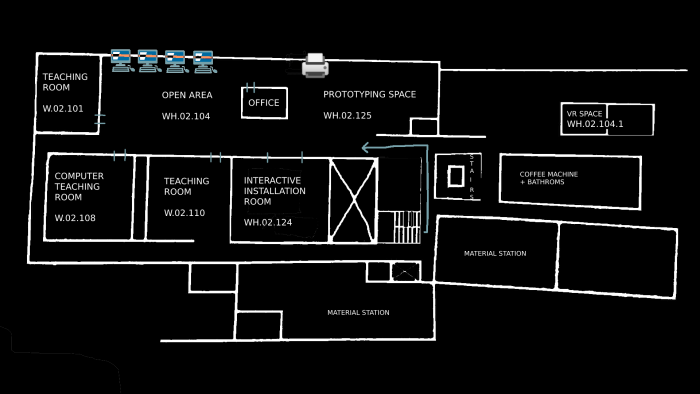FrontPageTest
STATION
WIKI
AND
COURSES
- Algorithmic Drawing
- bibliotecha
- Chihuahua or Muffin?
- Chihuahua or Muffin? (2019)
- Chihuahua or Muffin? (2018)
- Critical Making Session
- Critical Tools: The Fabulous School of Octopy
- Debugging electronics
- Digital Craft classes
- Dirty Data and Dog Nuggets
- Energy for Designers
- Food Station 2.0
- Hardware Hacking
- Intro Interactive Fashion
- Kinect_Hacks_2015-2016
- Late Night Soldering: Wind
- Late Night Soldering : Water
- Paper, Strings & Electronic things
- Play FA 1.1
- Points of departure: Wearables
- Programming with Processing
- Programming with Processing(2019)
- Prototyping Future Realities w/ Tilt Brush
- Quill 2023
- Quill 2022
- Repair and Broken World Thinking
- Product Design Intro to Arduino
- RE-
- Sensing
- The dying art of computer viruses
- Trans/humanism/Trans/formationdesign
- Twitter Course
- Zoetrope workshop readme
- E-textiles and Wearables
- MicrobitStationSkill
- Automata
- Tinkering workshop
- physical interfaces
- Manifesto/Movement
- how it's made
- DBK4
- MakingCapacitiveSensors
- Transformation Design:Waste Streams
- Bleep Slider mini synth
- De-fine art
- Diving in Aether
- Demystifying the Æther
- p2-hacking
In the Interaction Station we focus on a broad array of technologies; including programming, electronics, augmented and virtual reality, real-time 3d, machine learning and AI.
We take an open and experimental approach to digital crafts, acknowledging that the definition of interaction is constantly shifting. We like to experiment with new tools, technologies and hardware, taking a critical eye to developing technologies and seeing how they can be appropriated for creative uses. We’re equally interested in how older technologies can be re-evaluated in contemporary contexts.
Most importantly when we think of interaction, it is not only between people and machines, but interaction between people.
The instructors in the Interaction Station come from a variety of backgrounds, with diverse sets of expertise. We’re here to help you develop your ideas into working projects providing individual consultation, station skills and lessons.
We provide the space to experiment and build your projects, with a number of workspaces available to students.
What can you do here?
Prototyping Space WH.02.125
The prototyping space in WH.02.125 is a workspace for prototyping electronics and physical projects. The space includes several soldering stations, a power supply and test equipment, as well as a laser cutter and a 3d printer.
In the station office we have a wide variety of electronic components, ICs, sensors, actuators, motors and more. We also have several different microcontrollers such as the Arduino, and a variety of shields for the Arduino as well as mini computers such as the Raspberry Pi and Nvidia Jetson that you can borrow to work your prototypes within the station. The equipment can be signed out using your student card, but only for use in the station. If you need to sign out equipment for a longer period of time please visit the Rental on the ground floor.
Interactive Installation Space WH.02.124
In WH.02.124 you can find the Interactive Installation Space, which features a large-scale floor-to-ceiling rear projection screen with adjustable depth and a multi-channel audio setup.
Virtual Reality and Augmented reality
The station has a variety of headsets to experiment with, including versions of the HTC Vive, Microsoft Hololens , Oculus Rift, Quest and Go. We have a dedicated VR space in WH.02.104.1 (HTC Vive) that students can book via myWDKA to work on VR projects. In WH.02.104 and WH.02.110 we have several high-end PCs with powerful graphics cards to work on projects. Additionally we have a number of 360 cameras to record VR video.
Machine Learning and Artificial Intelligence
The PCs In WH.02.104 and WH.02.110 are dual boot machines that run both Windows and Linux where you can test out deep learning algorithms, train your own neural network, experiment with Deepfakes, object recognition ,textgeneration and much more.
